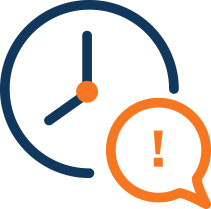Job Performance
- Raymond Cattell, 1950
- The Big Five Personality Dimensions and Job Performance: A Meta-Analysis – Barrick and Mount
Conscientiousness
All jobs
There is significant proof that this personality trait is a very good predictor of future job performance since it assesses whether a candidate is persistent, organized, careful, responsible and hardworking.
These are all important attributes for accomplishing work tasks in all jobs
Candidates who exhibit these traits have a strong sense of purpose, duty and persistence and generally perform better than those who don’t.
Extraversion
Agreeableness
Jobs involving social interaction, and frequent interactions or cooperation with others
These personality dimensions are valid predictors particularly relevant to two occupations – Management and Sales.
For both types of jobs, interaction with others is a significant portion of the job. Thus traits like sociable, gregarious, talkative, assertive, and active would lead to effective performance in these jobs.
However, these traits will be less important in:
- skilled/semi-skilled jobs (e.g. secretaries, assemblers, accountants, production workers)
- professionals (e.g. architects, engineers)
Emotional Stability
All jobs
The negative side of emotional stability are predictors of employees exhibiting neurotic characteristics, such as:
These are all important attributes for accomplishing work tasks in all jobs
- worry, nervousness, high-stung, temperamental and self-pity
Employees who exhibit low emotional stability will be less successful than employees who are emotionally stable
Openness to Experience
Jobs involving learning
Openness to experience, which assesses characteristics such as curious, forward-thinking and intelligent are positive attributes for learning.
Therefore, this personality dimension will be valid predictor for the training proficiency
There is also an indirect impact on job performance because employees who score high on this personality dimension tend to ‘learn on the job’, pick up new skills and become better
Why should you conduct personality assessments?
There is no guarantee that a candidate with a well written CV and confident face-to-face interview would be a good employee. CVs have one of the weakest correlations with performance, and interviews fare poorly as well. The truth is that to avoid potentially bad hires, recruiters need to go beyond CV analysis, and this is where personality assessments play an important role.
Personality assessments measure workplace personality traits, which are good predictors of a candidate’s future job performance. This allows companies to quickly assess if a candidate is suitable for a job position or not.
If personality assessments are well-developed and scientifically proven, they can be used by recruiters as an objective source of reliable information to successfully predict employee performance across a wide range of job categories and to make hiring decisions based on concrete criteria.

EasyTalent’s automated talent assessment platform with integrated personality assessments allows companies to conduct personality tests using reliable and validated testing instruments.
When should personality assessments be done?
The earlier a personality assessment is conducted in the recruiting process, the better it is. The company can save a lot of money and time if done early.
Imagine that an applicant makes it through the final steps of the process. However, after having done the personality test it turns out their personality does not fit with the company’s values and culture.
So all the effort you’ve put in the first screening of the applicant turned out to be in vain. Introducing a personality test in the early stages of the recruitment process addresses this problem and allows you to evaluate your candidate’s personality more efficiently.

EasyTalent allows companies to apply personality tests at the beginning of the recruitment process, and not at the end. This helps to screen out candidates that are not a good fit at all.





